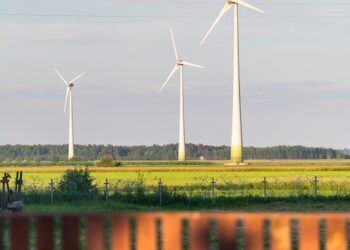Green Tomorrow: Innovations Shaping an Eco-Friendly 2025
The march towards a sustainable future is being accelerated by groundbreaking innovations aimed at reducing our environmental footprint. As we head towards 2025, a wave of eco-friendly technologies and initiatives is set to transform how we live, work, and interact with our planet. This article delves into the key innovations driving us towards an eco-friendly 2025, offering insights into their impacts, functionalities, and the roles they will play in our daily lives.
Renewable Energy Technologies
Renewable energy has been at the forefront of environmental discussions for decades. By 2025, advancements in solar and wind technology are expected to lead the charge in a cleaner, more sustainable energy transition. Innovations such as floating solar farms and enhanced wind turbine designs are not only making these energy sources more efficient but also more adaptable to different environments.
Solar Power Enhancements
Recent breakthroughs in photovoltaic cell technology have significantly increased solar panel efficiency. Innovations such as perovskite solar cells are predicted to offer cheaper and more dynamic solutions compared to traditional silicon models. With greater efficiency, these solar panels reduce the cost per kilowatt-hour, helping to make renewable energy more accessible globally.
Advances in Wind Energy
Wind energy is set to become more prolific by 2025 through the development of turbines that can harness wind from any direction and technologies minimizing the impact on local wildlife. Moreover, offshore wind farms are expanding, driven by advancements that allow deeper water installations, increasing energy yield per square meter.
Smart Grids and Energy Storage
The integration of smart grids with renewable energy systems is a crucial aspect of the 2025 eco-friendly landscape. These smart grids allow for more efficient energy distribution and management, reducing wastage and enhancing the stability of energy supplies. Complementing these are developments in energy storage, such as solid-state batteries, which offer higher energy density and longer lifespans, crucial for both mobile applications and stationary energy storage systems.
Sustainable Urban Development
As urban populations continue to grow, sustainable development is more critical than ever. The concept of “smart cities” harnesses IoT (Internet of Things) technology to optimize resources such as energy and water, and to improve waste management. By 2025, smart urban planning will likely be standard in city development, integrating green spaces and ensuring buildings are both energy-efficient and capable of producing their own energy.
Green Building Innovations
Green buildings are an essential component of sustainable urban environments. These structures prioritize energy efficiency, reduced water usage, and lower greenhouse gas emissions. Innovations in green building materials, such as self-healing concrete and pollution-absorbing bricks, are set to transform construction by reducing environmental impacts while enhancing building functionalities.
Zero-Emission Transportation Solutions
The transportation sector is undergoing a revolutionary shift towards zero-emission technologies. By 2025, electric vehicles (EVs) are poised to dominate the market, supported by an expanding global network of charging stations. Furthermore, public transport systems are being overhauled with the adoption of electric and hydrogen fuel cell buses and trains, reducing urban air pollution substantially.
The Role of Autonomous Vehicles
Autonomous vehicles also play a critical role in the green revolution. These vehicles are designed to optimize fuel efficiency and reduce traffic congestion, leading to lower emissions. Enhanced by AI and machine learning, autonomous driving technology ensures that vehicles are safer and more efficient.
Waste Management Innovations
Efficient waste management is pivotal in reducing the environmental impact of modern societies. Innovations like advanced recycling techniques and biodegradable materials aim to tackle the global waste crisis. For instance, enzyme-based recycling can decompose plastics into their original components, facilitating a circular economy where materials are reused indefinitely.
Consumer Products and Sustainability
Eco-friendly consumer products are becoming increasingly popular, reflecting a shift in consumer values towards sustainability. By 2025, products ranging from biodegradable packaging to sustainable fashion items made from recycled materials will likely be commonplace, reflecting a global trend towards environmental responsibility at the consumer level.
Conclusion
The year 2025 marks a significant milestone in the journey towards a sustainable future. Innovations across various sectors promise to reduce our environmental footprint, while enhancing the quality of life. Renewable energy, smart cities, green buildings, zero-emission transport, and efficient waste management are just a few areas where significant progress is expected. With each step forward, we come closer to realizing a green tomorrow, proving that technological advancements can, indeed, pave the way for a sustainable future.
By staying informed and supporting eco-friendly initiatives and technologies, everyone can play a part in this important transition. The future is green, and 2025 is just the beginning of what promises to be an exciting, sustainable journey.









